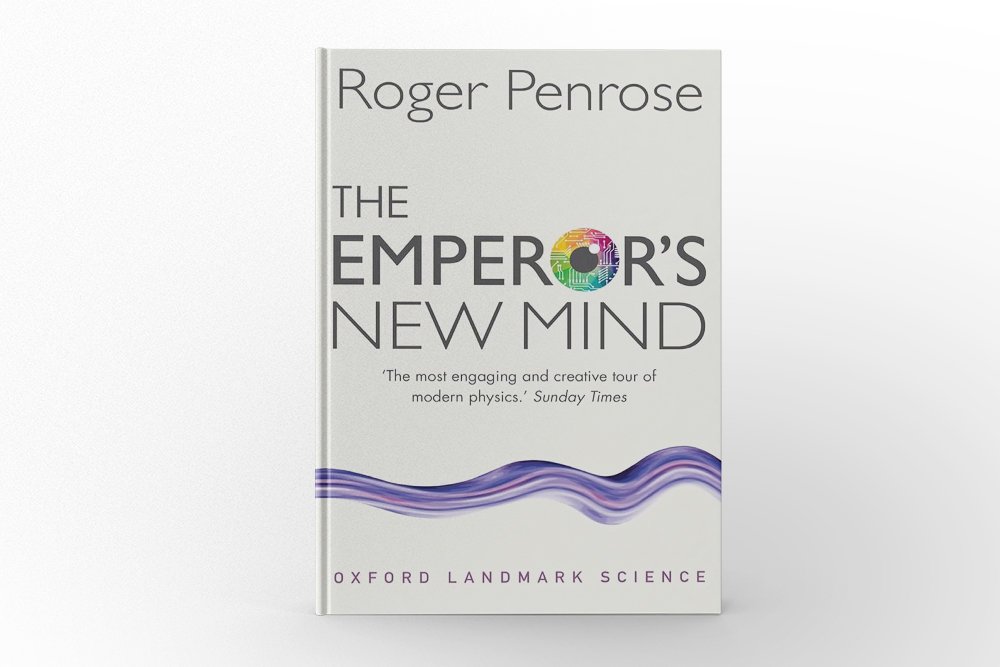“The Emperor’s New Mind by Roger Penrose” is a groundbreaking book that delves into the intricate relationship between consciousness and computation. This seminal work challenges the conventional views of artificial intelligence and explores the profound mysteries of the human mind. In this article, we will explore the key themes, insights, and contributions of this remarkable book.
Author’s Background
Roger Penrose is a renowned physicist and mathematician, celebrated for his contributions to the fields of general relativity and cosmology. Born in 1931, Penrose has had a distinguished career, earning numerous accolades, including the Nobel Prize in Physics in 2020. His work often intersects with philosophical questions, making him a unique voice in the scientific community. “The Emperor’s New Mind” reflects his deep curiosity and expertise in both science and philosophy.
In-Depth Summary
“The Emperor’s New Mind by Roger Penrose” is a comprehensive exploration of the nature of consciousness and its relationship to the physical world. Penrose begins by examining the limitations of classical physics and the rise of quantum mechanics. He argues that the deterministic nature of classical physics cannot fully explain the complexities of the human mind.
Penrose introduces the concept of non-computable processes, suggesting that human consciousness cannot be replicated by a computer. He delves into Gödel’s incompleteness theorems, which demonstrate that there are truths in mathematics that cannot be proven by any algorithm. This, he argues, implies that human thought transcends mere computation.
The book also explores the role of quantum mechanics in understanding consciousness. Penrose proposes that quantum processes within the brain might play a crucial role in the emergence of conscious thought. He discusses the idea of quantum coherence and its potential implications for neural activity.
Throughout the book, Penrose challenges the notion that artificial intelligence can ever achieve true consciousness. He critiques the Turing Test and other benchmarks used to measure AI, arguing that they fail to capture the essence of human experience. Instead, he advocates for a deeper understanding of the physical and philosophical underpinnings of consciousness.
Themes and Insights
One of the central themes of “The Emperor’s New Mind by Roger Penrose” is the distinction between computation and consciousness. Penrose argues that while computers can perform complex calculations, they lack the ability to understand or experience. This distinction raises profound questions about the nature of intelligence and the limits of artificial systems.
Another key theme is the role of quantum mechanics in the brain. Penrose’s hypothesis that quantum processes might be involved in consciousness is both controversial and intriguing. It opens up new avenues for research and challenges existing paradigms in neuroscience and cognitive science.
The book also touches on philosophical questions about the nature of reality and the limits of human knowledge. Penrose’s exploration of Gödel’s theorems highlights the inherent limitations of formal systems and suggests that human intuition and creativity are essential components of understanding.
Recommendation
“The Emperor’s New Mind by Roger Penrose” is a must-read for anyone interested in the intersection of science, philosophy, and consciousness. Penrose’s writing is both accessible and thought-provoking, making complex ideas understandable to a broad audience. Whether you are a scientist, philosopher, or curious reader, this book offers valuable insights into the mysteries of the mind.
Impact and Legacy
Since its publication, “The Emperor’s New Mind by Roger Penrose” has had a significant impact on both scientific and philosophical discussions about consciousness. It has inspired further research into the role of quantum mechanics in the brain and has influenced debates about the potential and limitations of artificial intelligence. Penrose’s ideas continue to resonate, encouraging a deeper exploration of the mysteries of the human mind.
Conclusion
In conclusion, “The Emperor’s New Mind by Roger Penrose” is a profound exploration of consciousness and computation. Penrose’s arguments challenge conventional views and open up new possibilities for understanding the human mind. By examining the limitations of classical physics, the potential role of quantum mechanics, and the philosophical implications of Gödel’s theorems, Penrose provides a rich and nuanced perspective on one of the most intriguing questions of our time.
